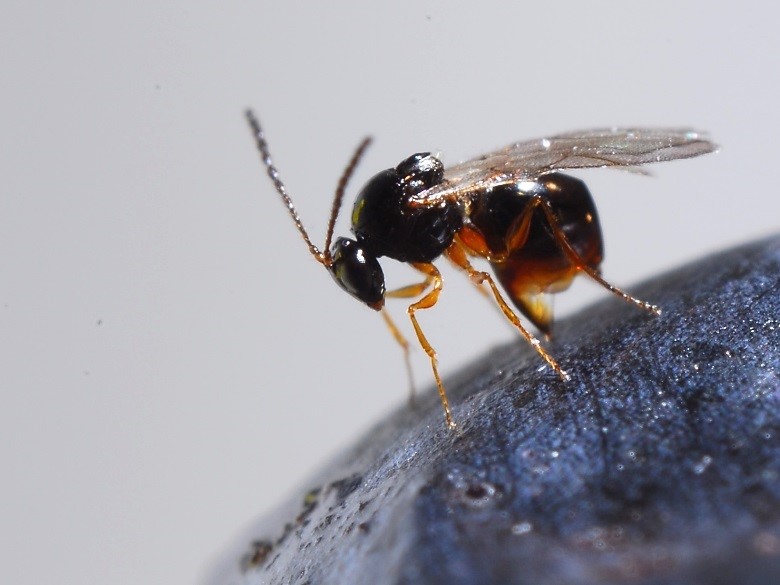Project in brief
 Drosophila suzukii is one of the most destructive invasive alien insects in the world. In Italy, it is severely damaging crops of small fruits, cherry, stone fruits, and grapes. Efforts have been underway for several years to implement widespread biological control, through releases of the exotic parasitoid Ganaspis brasiliensis and the study of the accidentally introduced parasitoid Leptopilina japonica. Classical biological control has the potential to restore pest populations to an ecological balance similar to that of native areas, but extensive studies are needed to protect and optimize its effectiveness. SUSHI will contribute to this goal by studying the biology and ecology of the two biocontrol agents and modeling their future effects.
Drosophila suzukii is one of the most destructive invasive alien insects in the world. In Italy, it is severely damaging crops of small fruits, cherry, stone fruits, and grapes. Efforts have been underway for several years to implement widespread biological control, through releases of the exotic parasitoid Ganaspis brasiliensis and the study of the accidentally introduced parasitoid Leptopilina japonica. Classical biological control has the potential to restore pest populations to an ecological balance similar to that of native areas, but extensive studies are needed to protect and optimize its effectiveness. SUSHI will contribute to this goal by studying the biology and ecology of the two biocontrol agents and modeling their future effects.
Project objectives
- To characterize the chemical cues regulating the foraging activity of the two main natural enemies of D. suzukii
- To characterize the biological features of the parasitoids in response to environmental and biological variables and competition
- To assess the effect of juvenile and adult experience on parasitoid fitness
- To model the effect of single vs multiple introduction of specialist and/or generalist parasitoid species on pest control
Impact
The characterization of the performance of the main natural enemies of D. suzukii will have significant scientific impacts given the importance and timeliness of the issue, but it will also have notable economic and social implications. SUSHI will indeed contribute to the development of integrated and biological control strategies that will allow for the reduction of losses in fruit production and pesticide use, thus also protecting the environment and citizen's health.
SUSHI will contribute towards the expected impacts listed in the new Horizon Europe 2021-2027 for topics related to “New and emerging risks to plant health” in the cluster for Sustainable Food Security. This project is also in line with i) the current commitment of the EU to reduce the use of chemical pesticides by promoting sustainable biological methods (Directive 2009/128/EC), to ensure food safety and protect ecosystem health, ii) policy areas within A European Green Deal, such as Sustainable Agriculture and the Farm to Fork Strategy.
Funding
This project has received funding from European Union, Next generation EU, PROGETTI DI RICERCA DI RILEVANTE INTERESSE NAZIONALE – Bando 2022.


